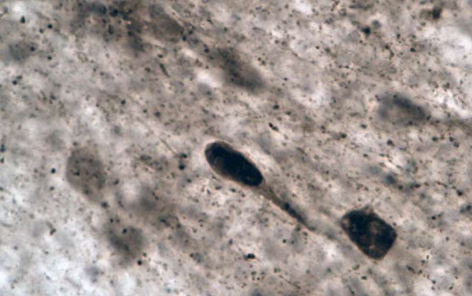Researchers discover a potential cause of Parkinson’s disease
May 7, 2023
Source: drugdu
 341
341
There are currently 8 million patients with Parkinson's disease in the world.
In 2021, Professor Per Saris's group published results demonstrating that bacteria of the Desulfovibrio bacterial genus correlate with Parkinson's disease, and that their higher number also correlates with the severity of the symptoms of the disease. Replicating the same study, Chinese researchers came to the same conclusion.
"Our findings are significant, as the cause of Parkinson's disease has gone unknown despite attempts to identify it throughout the last two centuries. The findings indicate that specific strains of Desulfovibrio bacteria are likely to cause Parkinson's disease. The disease is primarily caused by environmental factors, that is, environmental exposure to the Desulfovibrio bacterial strains that cause Parkinson's disease. Only a small share, or roughly 10%, of Parkinson's disease is caused by individual genes," says Professor Per Saris from the University of Helsinki.
The goal of Professor Saris's research group was to experimentally investigate whether the Desulfovibrio strains found in patients can result in progress towards Parkinson's disease.
The principal finding of the group's most recently study, published May 1 in Frontiers in Cellular and Infection Microbiology, was that these strains in patients with Parkinson's disease cause aggregation of the α-synuclein protein on a statistically significant level in a model organism for Parkinson's disease. The worm Caenorhabditis elegans was used as the model organism.
The study also found that Desulfovibrio strains isolated from healthy individuals do not cause α-synuclein aggregation to the same degree. In contrast, the aggregates caused by the Desulfovibrio strains in patients with Parkinson's diseases were also larger.
"Our findings make it possible to screen for the carriers of these harmful Desulfovibrio bacteria. Consequently, they can be targeted by measures to remove these strains from the gut, potentially alleviating and slowing the symptoms of patients with Parkinson's disease. Once the Desulfovibrio bacteria are eliminated from the gut, α-synuclein aggregates are no longer formed in intestinal cells, from which they travel towards the brain via the vagus nerve like prion proteins," Saris says.
Provided by University of Helsinki
By editor
Read more on
- The first subject has been dosed in the Phase I clinical trial of Yuandong Bio’s EP-0210 monoclonal antibody injection. February 10, 2026
- Clinical trial of recombinant herpes zoster ZFA01 adjuvant vaccine (CHO cells) approved February 10, 2026
- Heyu Pharmaceuticals’ FGFR4 inhibitor ipagoglottinib has received Fast Track designation from the FDA for the treatment of advanced HCC patients with FGF19 overexpression who have been treated with ICIs and mTKIs. February 10, 2026
- Sanofi’s “Rilzabrutinib” has been recognized as a Breakthrough Therapy in the United States and an Orphan Drug in Japan, and has applied for marketing approval in China. February 10, 2026
- Domestically developed blockbuster ADC approved for new indication February 10, 2026
your submission has already been received.
OK
Subscribe
Please enter a valid Email address!
Submit
The most relevant industry news & insight will be sent to you every two weeks.




